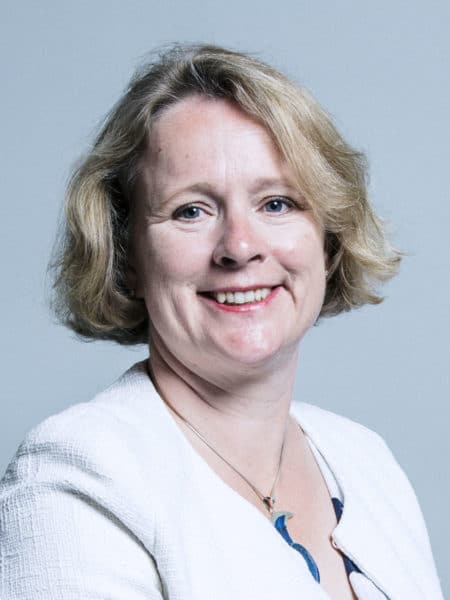Open letter to parents and carers of children with SEND

Open letter to parents and carers of children with SEND, from Vicky Ford MP Parliamentary Under-Secretary of State for Children and Families
30 May 2020
To all children and young people with special educational needs and disabilities (SEND), their parents/carers and families, and others who support them
I would like to express my sincere thanks for everything you are doing at this challenging time. I also wanted to explain how the wider opening of schools and other educational settings may affect your family. This letter has been distributed through as many of our partner organisations as possible. I would be grateful if you could also circulate it widely.
I realise that this is a particularly difficult time for children and young people with SEND and their families, and I’m sure that you have lots of questions. As you will be aware, on 28 May the Prime Minister announced that the Government’s five tests had been met and, based on all the evidence, primary schools and early years’ settings will be opening to more children and young people from the week commencing the 1 June. Secondary schools and colleges will begin to offer some face-to-face support to Year 10 and 12 students and 16-19 learners taking key exams next year.
On 26 May, the Department for Education (DfE) published guidance to help colleagues working in local authorities and educational settings to support the needs of children and young people with SEND through the process of wider opening to more children and young people. The full guidance is available at this link.
We have produced this guidance with help from SEND sector organisations, including parent carer forums and representatives, to outline pragmatic approaches that local authorities, educational settings, and parents or carers may wish to take to support children and young people with SEND throughout the coronavirus (COVID-19) outbreak.
This guidance updates our existing advice to local authorities on risk assessments to determine which children and young people should be attending their education setting. It now also includes advice on how to approach the phased return to face-to-face education for children and young people with SEND.
I want to assure you that safety will always be our primary concern. Local authorities and educational settings should work with families to bring children and young people back to face-to-face education to ensure they receive the support that every child or young person deserves.
This new guidance sets out that children and young people with SEND in mainstream and Alternative Provision settings who have not been attending and are in eligible year groups should experience the same return to their school/college or contact with their teachers as their peers without SEND in the same year group.
We recognise that each individual child with SEND has their own needs, so decisions should be based on each child’s risk assessment with families and schools working together.
Special schools, special post-16 institutions and hospital schools should work towards welcoming back as many children and young people as can be safely catered for in their setting based on risk assessments but not using their year group as a primary deciding factor. Educational settings and local authorities should keep risk assessments up to date, to ensure they are able to offer places to pupils and students, whatever year group they are in, where circumstances have changed.
I know that there has been a huge amount of change at this time, so if you want more details, you may also wish to read further guidance including:
- Actions for education and childcare settings to prepare for wider opening from 1 June 2020 and actions for FE colleges and providers during the coronavirus outbreak, which sets out the overarching aims and principles of wider opening and the next steps for education and childcare providers.
- Guidance on implementing protective measures in education and childcare settings.
- Guidance on safe working in education, childcare and children’s social care, including the use of PPE in education, childcare and children’s social care settings during the coronavirus outbreak.
- Guidance on isolation in residential educational settings.
- Guidance on supporting vulnerable children and young people during the coronavirus outbreak.
- Guidance on the changes to the law on education, health and care needs assessments and plans due to coronavirus.
I realise that whilst the coronavirus pandemic has affected us all, children and young people with SEND and their families have often faced particularly acute challenges. This is why I was happy to announce on 19 May that the Family Fund will receive funding of £37.3 million in 2020-21.
The Family Fund provides grants to families on low incomes who have children with disabilities or severe medical conditions, and this funding includes £10 million which has been allocated to help families in response to the Covid-19 pandemic. More details can be found here.
You can also keep up to date by regularly checking the gov.uk webpages and if you want to speak to an advisor from the DfE, please do call the DfE Coronavirus helpline which we have established for local authorities, providers and parents. The number is 0800 046 8687, and lines are open 8am-6pm (Monday – Friday), and 10am – 4pm (Saturday and Sunday).
The Council for Disabled Children has also pulled together a wide set of resources to respond to frequently asked questions.
Finally, I would like to express my personal gratitude towards all those in the SEND sector for continuing to care for, teach and support vulnerable children and young people in these difficult times.
Yours sincerely,
Vicky Ford MP Parliamentary Under-Secretary of State for Children and Families